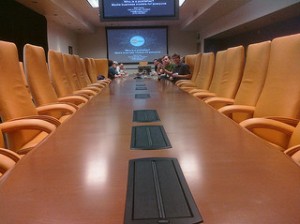The saying. “words mean things” goes beyond the general idea of the simple dictionary meaning of words. Words carry weight, intent, meaning and attitude. The “way” words are spoken are just as important as the words that are chosen. When choosing what words to use, in what context and to what audiences, media outlets should be careful in selecting words that can enlighten, entertain or even harm their readers.
The media has a huge responsibility when reporting the news, although they may often think that they do not. The public and private sectors rely somewhat heavily on what the media has to report, how they report it, what new evidence that they have found regarding products or even what the latest corporate hush-hush gossip is all about. The bottom line is although people are responsible for what they choose to believe, the media is responsible for reporting accurate and genuine facts.
Why is it then that media relations would possibly toy with the idea of reporting anything less than accurate? The answer is simple: to be first. That’s it. Many media relations outlets want to be first in reporting the news, launching a product or showcasing a company. This doesn’t always apply to every single media relations company, but primarily to those who are interested in increasing their readership or customer base. Being first is essentially being king.
The story of the toxic shower curtain became a widespread source of worry when it was released initially by the New York University Medical Center. With a name like that attached to any public relations message, it’s bound to get anyone’s attention, let alone make a believer out of them. This department supposedly reported that shower curtains had a type of toxic material in them that caused all sorts of other medical conditions and could possibly cause other future complications if exposed to them over a long period of time. The only thing was that this story not only was not true, but after other reliable sources had picked it up and reported it as well (U.S. News & World Report, The Daily News in New York, MSNBC.com, ABC News and The Los Angeles Times) there had to be several story retractions, edits and apologies for incorrect reporting. Yes, that’s what happens when the news is wrong, right? But what makes these reputable outlets and other media venues rampant in reporting tainted stories?
Word selection.
Media outlets are sensitive to what works and what doesn’t work in public relations. They are aware that certain buzz words and the way those words can generate action can catapult them to the top of search engines and a reader’s inbox. Everybody wants to be first in story reporting and often accuracy can get lost in a flurry to meet deadlines and confirm story accounts.
The danger in using words to generate media activity can be harmful in any outlet’s future reputation. The public can be somewhat unforgiving when they discover that the story they’ve been following is peppered with inaccuracies. Even worse, they may even choose to not follow a popular or even a consistent agency if they fall prey to one bad story. Add to that the global affects word-of-mouth sharing, and media troubles can multiply. There is safety in giving good information. It’s all in the words you choose.
I am a freelance writer, blogger and professional motivational speaker. I primarily focus on business content, offering my clients strategic marketing strategies for their businesses. I have been an entrepreneur for over 13 years, after having worked extensively in corporate America.
